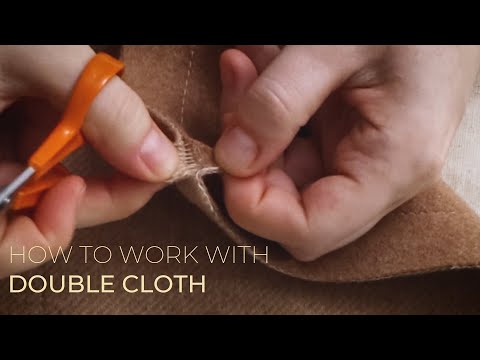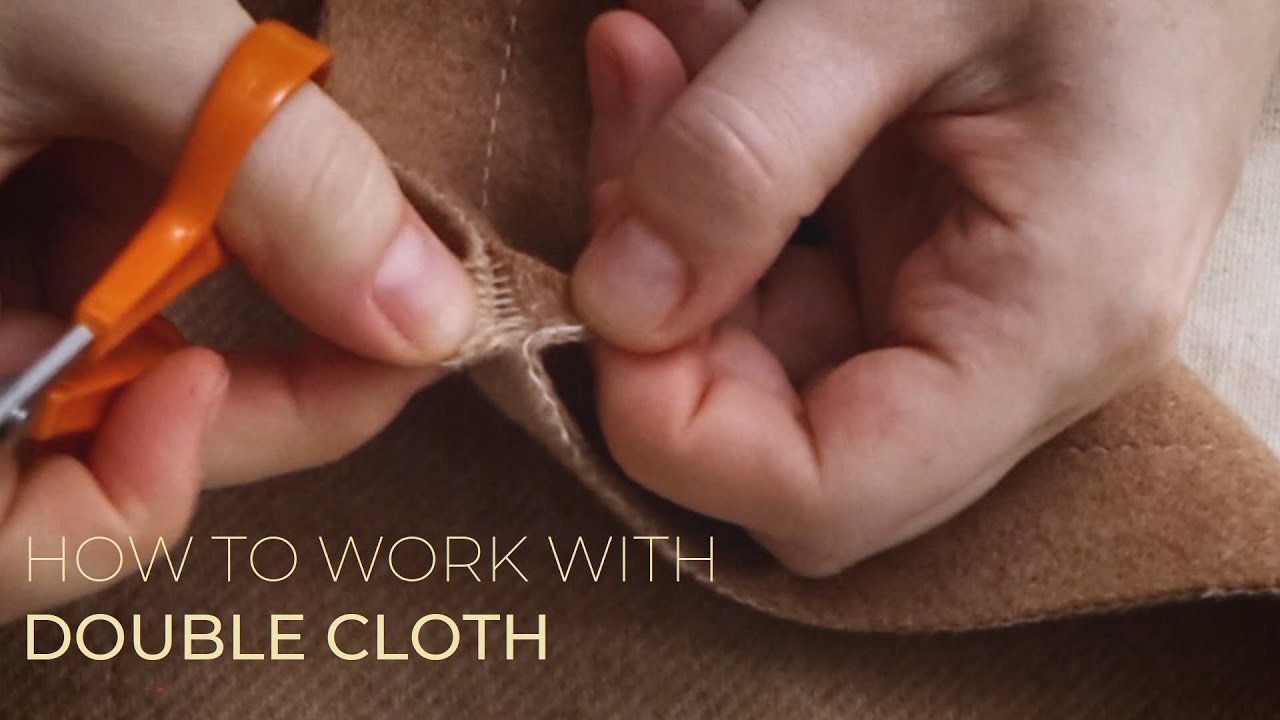Double Sided Fabric: Discover the innovative world of double sided fabric that is revolutionizing the textile industry. This cutting-edge fabric is designed to provide unmatched versatility and functionality, making it a game-changer for fashion enthusiasts and interior designers alike. With its unique reversible feature, this fabric allows you to effortlessly switch between two distinct patterns or colors, giving you endless creative possibilities. Whether you’re designing a stunning outfit or decorating your living space, this fabric offers the ultimate flexibility to suit your style and preferences. Crafted with meticulous attention to detail, this fabric boasts exceptional quality and durability, ensuring that your creations will stand the test of time. The exquisite texture and softness of this double sided fabric will leave you in awe, providing a luxurious feel against your skin or as a striking element in your home decor. Its versatility extends beyond traditional uses, as it can also be used for crafting beautiful accessories, such as bags, pillows, or even elegant drapery. Embrace the endless possibilities and elevate your creations with this extraordinary double sided fabric that is poised to redefine your perception of textile innovation.

The Versatility of Double Sided Fabric
When it comes to textiles, double sided fabric is an innovative and versatile option that offers numerous advantages over traditional single sided fabrics. With its unique construction and dual surfaces, double sided fabric opens up a world of possibilities for designers, manufacturers, and consumers alike. In this article, we will explore the benefits and applications of double sided fabric, and why it has become such a popular choice in various industries.
1. Enhanced Aesthetics and Design Opportunities
One of the key advantages of double sided fabric is its ability to offer enhanced aesthetics and design opportunities. With two distinct surfaces, designers can create visually appealing garments, accessories, and home decor items that showcase different patterns, colors, or textures on each side. This flexibility allows for greater creativity and customization, enabling designers to bring their visions to life in unique and striking ways.
Moreover, double sided fabric can also be used to create reversible garments, such as jackets or dresses, which offer versatility and style options for the wearer. With just a simple flip, individuals can completely change their look, making it an ideal choice for those who value practicality without compromising on fashion.
2. Enhanced Durability and Longevity
Another significant advantage of double sided fabric is its enhanced durability and longevity. The dual construction of double sided fabric often involves layers of different materials or fibers, which can provide additional strength and resilience. This makes it particularly suitable for applications that require frequent use, such as upholstery or heavy-duty clothing.
Additionally, the presence of two surfaces in double sided fabric can help distribute wear and tear more evenly, reducing the likelihood of fraying or pilling. This means that products made from double sided fabric are likely to last longer, saving consumers money in the long run and reducing environmental waste.
3. Improved Functionality and Performance
Double sided fabric offers improved functionality and performance compared to single sided fabrics. The two surfaces can serve different purposes, depending on the specific application. For example, one side of the fabric could be water-resistant, while the other side is breathable, making it an excellent choice for outdoor gear or sportswear.
Furthermore, double sided fabric can provide additional insulation, making it suitable for winter clothing or home textiles. The dual layers create an air pocket between them, which helps trap heat and keep the wearer warm. This added functionality makes double sided fabric a practical choice for various weather conditions and environments.
4. Efficient Use of Resources
Double sided fabric also offers the advantage of efficient use of resources. By utilizing both sides of the fabric, manufacturers can reduce waste and maximize their production output. This not only benefits the environment but also helps to minimize costs, making double sided fabric an economically viable option.
Additionally, the versatility of double sided fabric means that fewer materials may be needed to achieve the desired outcome. For instance, a reversible garment made from double sided fabric can replace two separate garments made from single sided fabrics, reducing the overall material consumption.
5. Diverse Applications
The versatility of double sided fabric allows for a wide range of applications across various industries. In the fashion industry, it can be used for garments, accessories, or even footwear. In the interior design industry, double sided fabric can be employed for upholstery, curtains, or bedding. It is also suitable for outdoor gear, such as tents or backpacks, due to its durability and functionality.
Moreover, double sided fabric can be utilized in the automotive and aviation industries for seat covers or interior linings, thanks to its enhanced durability and aesthetic appeal. The possibilities are endless, and as technology advances, new applications for double sided fabric continue to emerge.
Conclusion
Double sided fabric is a game-changer in the textile industry, offering enhanced aesthetics, durability, functionality, and resource efficiency. Its versatility and wide range of applications make it a popular choice for designers, manufacturers, and consumers alike. Whether it’s for fashion, interior design, or industrial use, double sided fabric provides endless possibilities for creative expression and practicality. Embrace the world of double sided fabric, and unlock a new dimension of textile innovation!
Mastering the Art of Double Cloth Fabric: Unleashing the Potential of Double-Sided Wool
Video Source : Good morning, pins
List of Double Sided Fabric
Double Sided Fabric Table
| Fabric Type | Description | Advantages | Disadvantages |
|---|---|---|---|
| Silk | Silk, a luxurious natural fabric, is often used for double sided fabrics. It is known for its smooth texture, brilliant luster, and breathability. | 1. Dual-sided design offers versatility for various garment applications. 2. Provides superior comfort and a lightweight feel. 3. Both sides have a beautiful sheen, adding an elegant touch to any outfit. 4. Silk has excellent moisture-wicking properties, keeping the wearer cool and dry. |
1. Requires special care and delicate handling due to its delicate nature. 2. Can be quite expensive compared to other fabric options. 3. Prone to wrinkles, which may require ironing or steaming. |
| Velvet | Velvet is a plush fabric known for its softness and rich appearance. It is commonly used for double sided fabrics to enhance the luxurious feel. | 1. Provides a sumptuous and opulent look on both sides, allowing for reversible designs. 2. Offers excellent insulation, making it ideal for colder weather garments. 3. Resistant to pilling and durable, ensuring longevity of the fabric. 4. The texture of velvet adds depth and visual interest to any outfit. |
1. Velvet can be heavy, making it less suitable for lightweight or summer clothing. 2. Requires careful cleaning, as it is prone to watermarks and can lose its softness if not handled properly. 3. May attract lint and pet hair, requiring regular maintenance. |
| Cotton | Cotton, a versatile and widely used fabric, can also be found in double sided variations. It is known for its breathability and comfort. | 1. Offers exceptional breathability, keeping the wearer cool in warmer weather. 2. Both sides provide a soft and gentle feel against the skin. 3. Easy to care for and can withstand regular washing without losing its quality. 4. Cotton is hypoallergenic, making it suitable for individuals with sensitive skin. |
1. Cotton may wrinkle easily, requiring ironing or steaming to maintain a neat appearance. 2. Limited color vibrancy compared to other fabric options. 3. Not as suitable for formal or luxurious garment designs. |
In the world of textiles, double sided fabric offers a unique and innovative approach to garment design. With a variety of fabric types available, such as silk, velvet, and cotton, fashion enthusiasts can now enjoy the benefits of reversible clothing.
Silk, known for its luxurious feel, is a popular choice for double sided fabrics. Its smooth texture, brilliant luster, and breathability make it an ideal option for creating versatile garments. However, it requires delicate handling and specialized care due to its delicate nature.
Velvet, on the other hand, provides a plush and opulent look on both sides. Its softness, rich appearance, and excellent insulation properties make it perfect for colder weather clothing. While it requires careful cleaning and maintenance, its durability ensures long-lasting wear.
For those seeking comfort and breathability, cotton double sided fabrics are an excellent choice. Cotton offers exceptional breathability, providing a cool and gentle feel against the skin. Easy to care for and hypoallergenic, cotton is a practical option for everyday wear.
In conclusion, double sided fabrics bring versatility and creativity to fashion. Whether you prefer the luxurious touch of silk, the opulence of velvet, or the comfort of cotton, reversible garments allow you to effortlessly switch up your style while enjoying the benefits of different fabric textures and properties.

